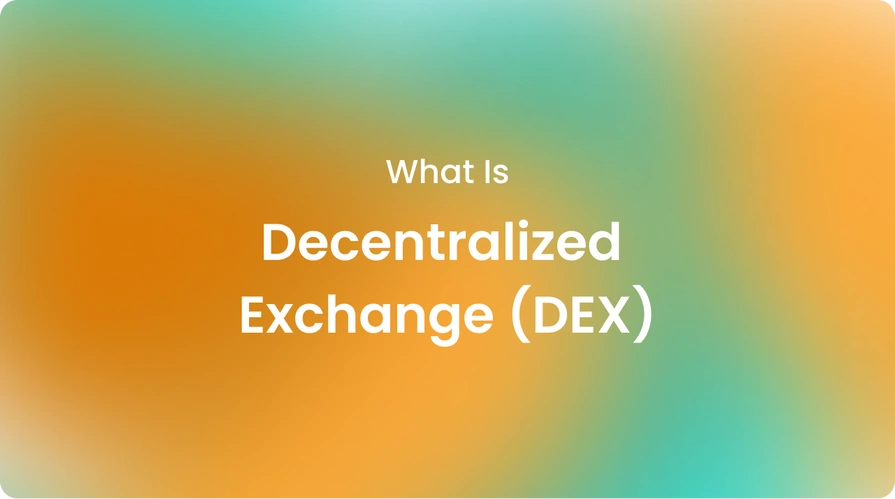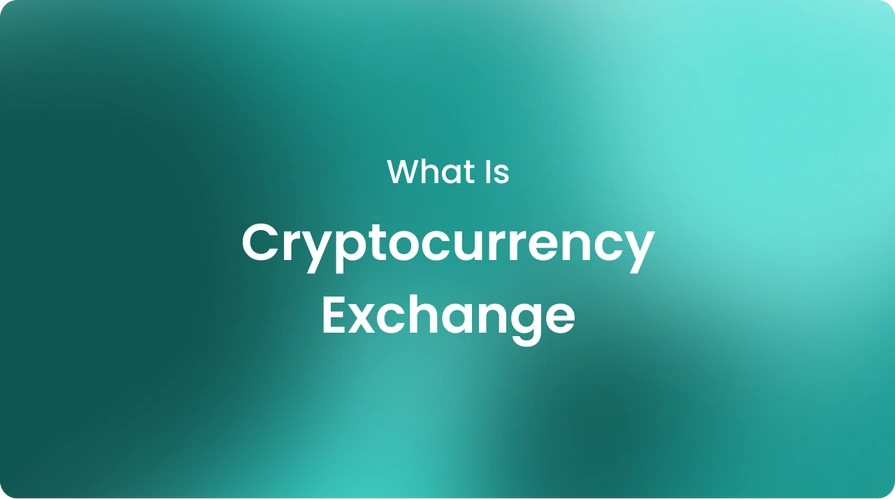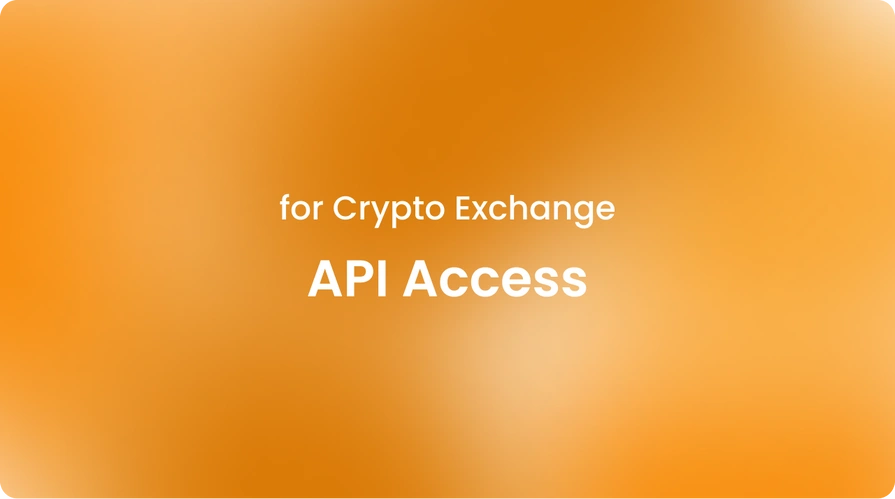|crypto, knowledgehub, technology
What Is a Decentralized Exchange (DEX)?

Decentralized exchanges (DEXs) are noncustodial trading platforms that accept multiple tokens. DEXs offer traders solutions to sell or buy cryptocurrency without incurring fees for service. However, their liquidity may not compare favorably to traditional and centralized ones.
Before choosing a DEX, several essential considerations must be made, including privacy and security concerns. Decentralized exchanges offer several distinct advantages for investors.
One key benefit is eliminating the need to transfer user funds to third parties. This provides a decrease in risk and greater freedom for cryptocurrency exchanges and crypto payments.
A decentralized exchange can also offer more types of cryptocurrencies and digital assets than its centralized counterpart and help increase decentralized finance inclusion by providing remote areas access to international financial ecosystems without incurring more costly local bank regulations.
DEXs can be a profitable solution for users who wish to trade cryptocurrency, yet they can be complicated and time-consuming to use.
They usually require compatible crypto wallets or digital wallets with smart contracts, as well as network fees and trading fees that may add additional expenses.
Join us in this blog as we go further in detail on decentralized exchanges. We will explore how they work, key differences between centralized exchanges, their benefits, types, and how to use them. Let’s start by exploring how they work!
How does a DEX work?
Decentralized exchanges are peer-to-peer cryptocurrency trading platforms that utilize smart contracts to facilitate crypto trading between members. DEX's purpose is to reduce counterparty risk, making them more accessible to everybody with online access and compatible wallets.
Moreover, users can manage their funds without any single centralized exchange wallet, thus decreasing capital concentration on one exchange alone.
Decentralized exchanges rely on their ability to attract traders for liquidity. Therefore, selecting an easy-to-navigate platform with many trading pairs should be your priority when determining one for liquidity purposes.
You should also assess whether there are enough technical resources and an active community of developers behind that platform.
Though most DEXs are built upon blockchain technology, they still may be vulnerable to centralization due to factors like having their matching engine hosted on a central server, having administrative access to their smart contracts, or using low-quality token bridging infrastructure.
Yet despite such concerns, DEXs offer numerous benefits for the crypto industry and crypto investments. As an expert crypto-friendly digital bank with numerous crypto services, Cryptobunq offers exchange API solutions. You can easily benefit from decentralized exchange advantages with CBQ.
Decentralized exchanges vs. centralized exchanges
For decentralized exchanges vs. centralized exchanges, various differences can be mentioned. Decentralized platforms differ from centralized exchanges in that they don't store users' crypto assets as custodians, thus making them less susceptible to security alarms or other types of fraud.
Unfortunately, however, DEXs do lack the support and convenience that come with traditional exchanges; additionally, they require more technical professionalism for use than their centralized counterparts.
However, just like centralized exchanges (CEXs), DEXs have some risks related to hacking and other security threats.
Hackers have taken to exploiting DEXs' vulnerabilities through what's known as "phishing", by taking over websites providing gateways into exchanges and duping victims into providing their wallet addresses and private keys.
In some examples, successfully stealing cryptocurrency that cannot be recovered from these exploits DEXs differ from traditional exchanges by lacking custodians and thus being less susceptible to security risks.
Instead, DEXs rely on blockchain network transactions for validation, making it more difficult for hackers to manipulate or attack DEXs. Additionally, there is no requirement to abide by Know Your Customer (KYC) or Anti-Money Laundering (AML) regulations provided by traditional institutions.
One major drawback of some DEXs is their user-unfriendliness. Unlike centralized exchanges with user-friendly interfaces, DEXs require their users to manage their crypto wallets and private keys themselves.
This may prove challenging for newcomers who require assistance getting started in this space; additionally, if someone loses or deletes their wallet, they risk forever losing all their coins. This is an important point for centralized and decentralized crypto exchanges.
What are the benefits of decentralized exchanges?
DEXs enable users to trade cryptocurrency directly between themselves without needing an exchange or broker, due to not relying on a central server; all trades are executed through smart contracts or smart contract 2.0 on the blockchain.
This allows more transparency, reduced security risks, and added privacy for users; this makes DEXs ideal for countries with limitative or outdated cryptocurrency regulations.
Decentralized exchanges (DEXs), also known as peer-to-peer platforms that allow people to trade cryptocurrency with each other without a third party, let their users trade directly with each other.
This means that prices are more competitive and there is no need for custodians, which can be risky for security, counterparty risk, and liquidity, such as reentrancy attacks in smart contracts. This is because less capital is concentrated in centralized exchanges.
Decentralized exchanges offer an alternative to centralized exchanges for crypto trading without needing government authority and regulations.
DEXs enable peer-to-peer trades between users using smart contracts, as well as security and liquidity benefits not offered at traditional centralized exchanges. It can be said that many traders find DEXs more desirable than conventional ones due to their benefits.
What are the types of decentralized exchanges?
Even though there are various types of decentralized exchange, most DEXs provide various payment options. Some charge a flat fee for all trades, while others levy per-order fees.
Commission rates also depend on order volumes placed, with higher volumes trading leading to minimized commission rates on certain platforms.
Decentralized platforms differ from centralized exchanges in that they don't store investors' crypto assets as custodians. It makes them less susceptible to hacking or other types of fraud.
Unfortunately, DEXs do lack the support and convenience that come with traditional exchanges; additionally, they require more technical information for use than their centralized counterparts.
As Cryptobunq, we offer the best services for both businesses and individuals who desire to launch their DEX projects. Let’s explore the types of decentralized exchange!
Automated market makers (AMMs)
Automated market makers, or AMMs, use smart contracts to make exchange operations easier. Liquidity problems can be addressed by automated market makers (AMMs) through the use of smart contracts.
Blockchain-based services use oracles to determine asset prices. By relying on pre-funded liquidity pools, these decentralized exchanges make it possible for users to trade without the need for a central authority or a shared trust system.
Order Book DEXs
Order book decentralized exchanges are similar to traditional centralized exchanges since they use order books to match.
Order books are records of open buy and sell orders for specific asset pairs, with the depth of the order book and market price determined by the difference in the prices at which the orders were placed. Both on-chain and off-chain order books are used in DEXs.
On-chain order books
These types of decentralized exchanges operate on the blockchain. They provide a more transparent ecosystem. Open-order information is stored on-chain in DEXs with order books, enabling traders to leverage their holdings with borrowed funds from platform lenders.
Off-chain order books
Off-chain order books are usually hosted on centralized servers. In order to retain the advantages of centralized exchanges, DEX platforms use off-chain order books to speed up deals and lower expenses.
DEX aggregators
DEX aggregators refer to platforms that help users find the most suitable costs. DEX aggregators employ a number of protocols for user protection and price stability, including those for managing liquidity, optimizing swap fees and token prices, and delivering the best interest rates to traders.
How do I use decentralized exchanges?
Many DEXs are built upon blockchain ecosystems and can manage either on-chain or off-chain. On-chain methods can be used to implement advanced features like order books, price feeds, and arbitrage strategies.
On the other hand, off-chain solutions provide support for DEXs' high transaction volumes by offering reliable source prices used within them.
At Cryptobunq, we are ready to serve you and make your investment projects and business models have the ability to work with DEXs and API access for crypto exchanges.
If you desire more detailed information about decentralized exchanges, you can contact us. Your business or financial projects can be advanced thanks to the decentralized exchange solutions offered by Cryptobunq!













